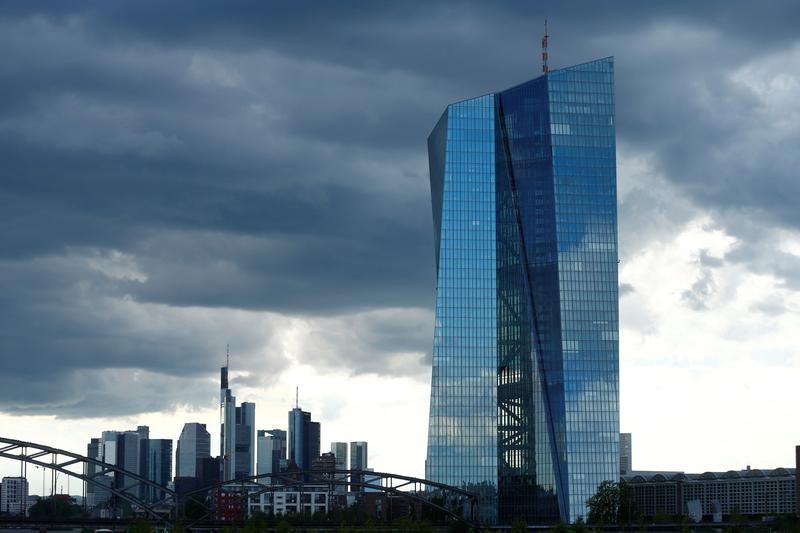By Geoffrey Smith
Investing.com -- Headline inflation in the euro zone eased slightly in February, according to preliminary data from Eurostat, but the core rate rose again, keeping the pressure on the European Central Bank to continue raising interest rates.
Eurostat said on Thursday that consumer prices rose a chunky 0.8% from January, both for the all-items index and for the index that excludes volatile food and energy prices.
That left the annual headline rate at 8.5%. down from 8.6% in January.
However, the core rate of inflation - excluding food, energy, alcohol, and tobacco - rose to 5.6% from 5.3%, rising further above the ECB's medium-term target of 2%.
ECB officials have stressed in recent days that a 50 basis point hike in its key rates at its meeting in March is a near-certainty, but a succession of stronger-than-expected economic data since the start of the year has led market participants to price in further rate hikes in the course of the year. Short-term interest rate futures now imply its deposit rate peaking at 4%, which would be a record high in the euro's 24-year life. It's currently at 2.5%.
German central bank head Joachim Nagel had said on Wednesday, "The interest rate step announced for March will not be the last. Further significant interest rate steps might even be necessary afterwards, too."
"Until we see the first signs of underlying inflation peaking, the ECB is unlikely to slow the pace of tightening," said Pictet Wealth Management's Frederik Ducrozet via Twitter, adding that "another 50bp hike in May is in play."
The numbers illustrate how the surge in energy prices last year has now passed through into almost all sectors of the economy, with sectors from food production to commercial services all being affected. Service prices rose 0.9% on the month, and are now up 4.8% on the year, while prices for non-energy industrial goods rose 0.8%, taking their annual increase to 6.8%.
"Falling energy prices were again the only reason behind this drop," said Oxford Economics' Paolo Grignani in a note to clients. "With the worst of the winter now behind us, disinflationary pressures from energy markets are likely to increase in the coming months."
Wholesale gas and electricity prices have fallen sharply in the last couple of months, as warm weather, administrative price caps from the European Commission and economic hardship have all crushed demand. With last year's spike having largely reversed, energy prices were up only 13.7% on the year, down from 18.9% in January.
That points to a broader disinflation trend beginning later in the year, all other things being equal. But it may not be enough to stop so-called 'second-round' inflation effects from taking hold, as workers seek higher wages to make up for lost spending power.
The euro was unchanged after the news at $1.0642, while benchmark bond yields, which have risen sharply in recent weeks as the market has repriced its expectations for the future trajectory of interest rates, were also little changed. The German 2-Year note, however, now trades at a 15-year high of 3.19%, having risen by some 65 basis points in the last four weeks alone.
